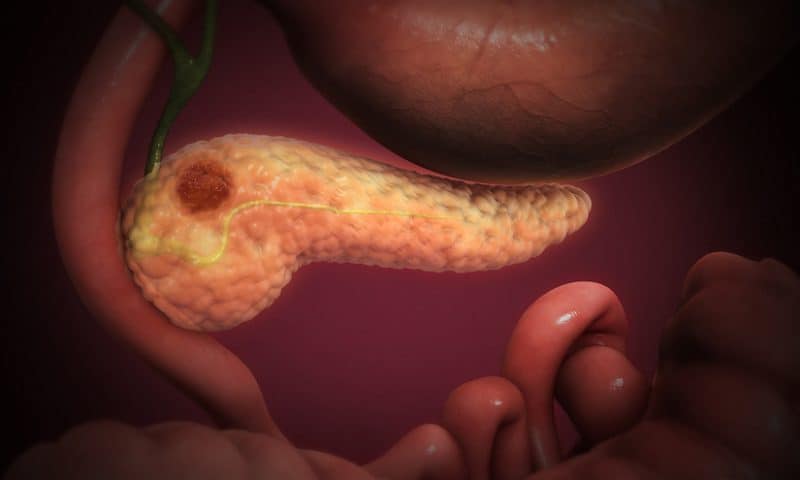Immune-stimulating antibodies that target the receptor CD40 are emerging as promising therapies for pancreatic cancer, but they’ve only shrunk tumors in about half of patients who received them, along with chemotherapy, in clinical trials.
Researchers from the University of Pennsylvania’s Abramson Cancer Center believe they’ve found one key to that lack of response. And it may be targetable with different drug combinations, they said.
The scientists studied samples from patients with the most common pancreatic cancer, pancreatic ductal adenocarcinoma (PDAC), and discovered that those with high levels of systemic inflammation in their blood before they were treated with a CD40 agonist and the chemo drug gemcitabine had poor survival outcomes. They reported their findings (PDF) in the journal JCI Insight.
The Penn team studied blood samples from 22 PDAC patients before and after they were treated with the chemo-immunotherapy combination. Some patients had high levels of inflammation before they were treated, evident from such markers as neutrophils and inflammatory cytokines like IL-6 and IL-8. Median overall survival in those patients was 5.8 months, while patients without inflammation before treatment lived on average 12.3 months.
The findings “support the fact that inflammation seems to place the immune system at a disadvantage and in doing so prevents the ability of immune therapies to work,” said senior author Gregory Beatty, M.D., Ph.D., an associate professor at Penn’s Perelman School of Medicine, in a statement.
Beatty has long been interested in the value of CD40 therapy in treating pancreatic cancer. He spotted the potential of the approach back in 2011 and a few years later shed light on how targeting the receptor improves the ability of chemotherapy drugs like gemcitabine to destroy tumors.
Several clinical trials of CD40 cocktails are underway in pancreatic cancer, including one combining Apexigen’s APX005M with chemotherapy and Bristol Myers Squibb’s anti-PD1 blockbuster Opdivo.
The next step for Beatty’s team is to try to find combinations that will suppress the inflammatory response to pancreatic cancer, so the immune system is better able to generate a T-cell attack on tumors.
“Accumulating evidence suggests that systemic inflammation is a mechanism of resistance to immunosurveillance, rather than simply a surrogate of aggressive cancer biology,” the Penn researchers wrote in the study.

